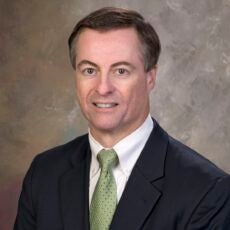
If It Sounds Too Good to be True, It Probably Is
If it sounds too good to be true, it probably is.
I quoted that old saying three years ago in raising come cautionary flags about a provocative claim that the United States, and each of its member states, could get all of their energy from renewables by 2055.
That proposition has since gained a life of its own. It spawned The Solutions Project. It was embraced by Senator Bernie Sanders. And last month, well-intentioned Federal legislation was proposed to enshrine it in policy.
Not so fast.
In a new paper published in the same journal as the original, a team of prominent energy researchers has sharply critiqued the original claim, saying it contained “invalid modelling tools, modelling errors,” and “made implausible and inadequately supported assumptions.”
The authors of the new critique wrote that a policy prescription relying solely on wind, solar, and hydropower “overpromises” on the benefits and “could be counterproductive, seriously impeding the move to a cost-effective decarbonized energy system.”
The original authors have responded to the critique here and here. And the critiquers have replied.
Some things are less debatable.
- In 2016, renewable energy sources accounted for about 10 percent of total U.S. energy consumption and about 15 percent of electricity generation.
- The United States’ fleet of nuclear power plants supply about one-fifth of the country’s electricity while emitting no greenhouse gases. Prematurely allowing them to go off-line will increase greenhouse gas emissions sharply, because they’ll be replaced mostly with natural gas-fired power, not renewables.
- The economics of renewable energy continue to rapidly improve, and renewable generation sources are increasingly competitive. Indeed, wind and solar will account for 48 percent of installed capacity and 34 percent of generation world-wide by 2040. But that’s a long way from what’s needed in the U.S. and globally to preserve a habitable climate.
Deep decarbonization is in deep trouble, and renewables alone will not save us.
Nor will any single climate hope, climate-friendly movement by companies and investors, or voluntary alliance.
Nor will oversimplifications.
My experience in energy and environmental policymaking has taught me that the perfect is usually the enemy of the good. The existential challenge of salvaging a habitable climate does not allow for perfection. It demands, above all, realism. A 100 percent renewable energy solution with today’s technologies is unrealistic.
Like a smart investor, we must pursue a diverse portfolio of climate-saving tools containing all kinds of technologies, policies, and actors. Preserving existing nuclear generation and advancing technologies like CCUS must be in the mix.
Some of these tools will prove more useful than others, but proof through at-scale practice in greenhouse gas reduction is what we need.
We can’t afford to pre-judge any climate-saving policy or technology, or unquestioningly accept-to the exclusion of all other options-those that look too good to be true. That is climate absolutism’s fatal flaw, and we accept it at our peril.
John Quigley
Senior FellowJohn Quigley is a senior fellow at the Kleinman Center and previously served on the Center’s Advisory Board. He served as Secretary of the PA Department of Environmental Protection and of the PA Department of Conservation and Natural Resources.

